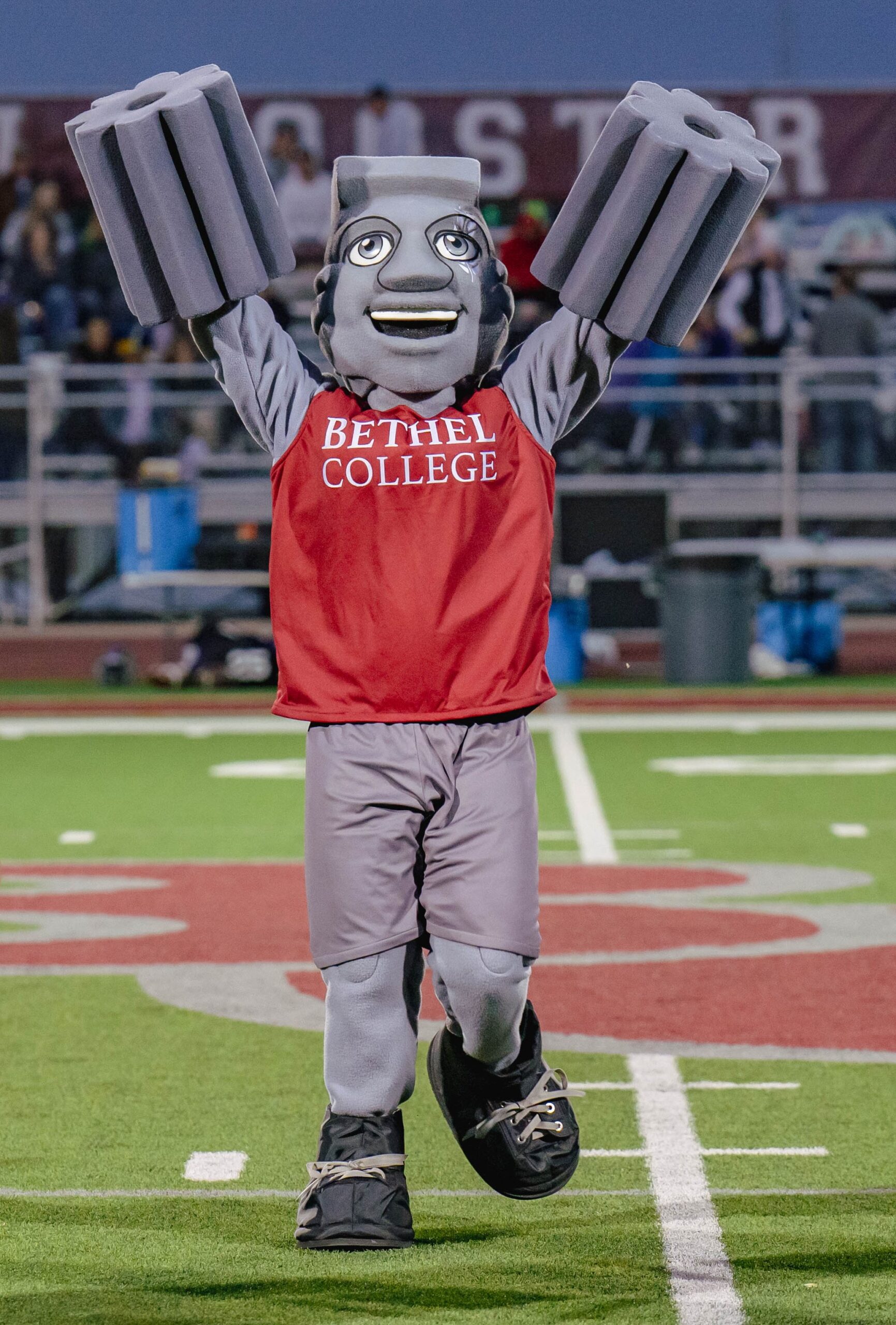About Bethel College
About Us

Bethel College offers a forward-thinking education, diversity within the community, & lifelong values
You’ll consistently find Bethel recognized in national rankings for return on investment, liberal arts education and service to the community.
Bethel College celebrates the rich tapestry of human experiences, and we actively promote a campus culture that embraces diversity in all its forms.
Nearly 25% of our student population identify as BIPOC. 20% are first-generation college students.
#14 in the list
of “Best Bachelor’s Colleges"
– Washington Monthly, 2023
#1 Kansas small college with highest earning graduates
– Zippia.com,
2018
#23 “Best Regional Colleges Midwest”
– US News & World Report, 2023-2024

Diversity within community
Since 1887, the ideal of a diverse community united through the search for knowledge has guided Bethel College.
You are invited to come, just as you are, to thrive in an inclusive, welcoming community. Regardless of your sexual orientation, gender identity, or expression, our commitment to diversity and acceptance extends to all members of the LGBTQIA community.
Diversity
Mission
Bethel College prepares students for meaningful lives of work and service through faith formation, the liberal arts, and practical experience in career pathways.
Vision
Bethel College graduates students who increase human flourishing (shalom) in society by owning and enacting their faith, demonstrating compassion for the powerless, engaging in critical thought, and bringing value to the workplace.
Statement of Agency
Bethel College is an independent institution of higher education, enjoying mutually beneficial and freely chosen relationships with churches, congregations, and agencies that are supportive of the mission and vision of the College.
Values
Bethel Values Statement
- High standards and expectations for behavior and performance in all dimensions of campus life.
- Dialogue that transforms conflict within communities where there are differences in opinion and understanding.
- Peace and justice that seek fair and equitable treatment for all members of society.
- Vocational discernment that helps students identify their calling and God’s purpose for their professional lives.
- Holistic wellness through a balance of mental, physical, and spiritual practices.
- Creative approaches for living harmoniously within a constantly changing world and workplace.
- Community with global consciousness that cherishes social connectivity, shared endeavors, and intergenerational living.
Mission, vision and values approved by the Bethel College Board of Directors on April 6, 2019


Catch the spirit and character of Bethel College
Interact with the other students, our faculty and staff who will be beside you, encouraging you, on your educational journey.
Become a part of the thriving vision that began more than 125 years ago as Bethel College continues to evolve and make its mark on the future through its graduates.
Who We Are

Separating the wheat from the chaff
Experience the commitment of the Bethel community to helping you discover your own goodness so that you might grow in intellect, character and spirit, becoming your best self.
Roots
Theology

Theology
Mennonite Heritage
Explore choices and determine life commitments without a particular religious perspective required, though Bethel’s Mennonite heritage will shape how you will experience faith and community on campus.
Religious Identity and Welcoming Statement
Bethel College is rooted in Christian theology, sustained by Anabaptist distinctiveness, and guided by Mennonite values. We welcome all people to our campus and prize individuals for their unique personalities, talents, and life experiences.
The Bethel College Seal and Scripture
“Other foundation can no one lay, than that is laid, which is Jesus Christ” (Updated from 1 Corinthians 3:11)
Trust
Leadership
You’ll call the college president by first name and have access to the administrative cabinet who has been entrusted by the independent corporation and board to keep the best interests of the college and its students in mind as they make daily decisions aligned with the mission and values of the institution.
Annual Reports









